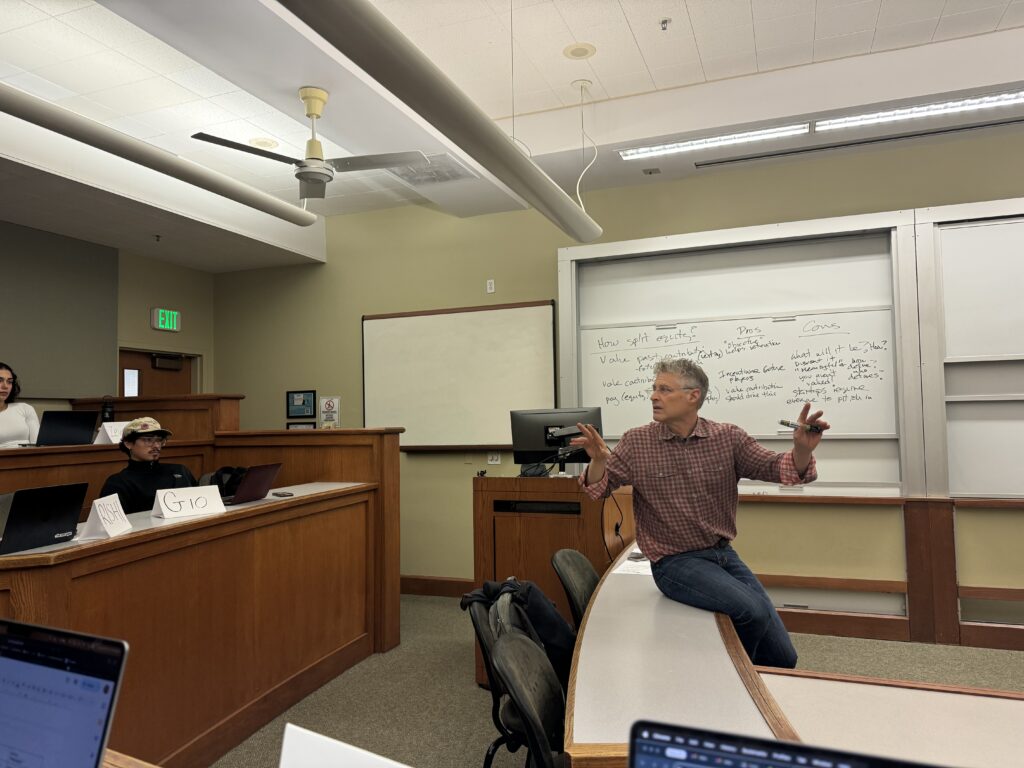Navigating High-Tech Ethics: Berkeley’s Changemaker Course Challenges Future Innovators
Professor Lee Fleming’s course, “Ethical and Effective Entrepreneurship in High Tech,” part of the UC Berkeley Changemaker® program, engages students in rigorous debates and case studies that probe the ethical and strategic dilemmas facing today’s business leaders. Each class centers on a distinct case that invites students to engage with high-stakes issues, from intellectual property rights to compensation equity.
In one case, students confront the predicament of a tech employee who refuses to relinquish patent rights, despite signing ownership agreements with her company. The scenario sparks spirited debates on intellectual property rights and management decisions, with students tasked to decide whether to fire him, concede to his demands, or pursue legal action.
Another real-world case prompts students to assess accountability when MBA students pitch a promising innovation from the college of engineering to venture capitalists without informing the professors behind the idea. This scenario raises questions about communication breakdowns, the motivations of researchers, and the delicate balance universities strike between fostering innovation and pursuing commercialization.
A more recent class focused on employee compensation fairness, where students explored the economic, ethical, and social dimensions of equitable pay reforms within high-profile companies like Google and Salesforce. Through examining Google’s widely criticized pay practices and Salesforce’s active efforts to close the gender wage gap, students analyze the systemic impacts of compensation decisions on corporate culture and societal trust.
In each class session, students engage in Socratic-style debates, dissecting complex scenarios with competing ethical, legal, and business interests. Professor Fleming provides guiding questions but lets students drive discussions, honing their critical thinking and communication skills. These carefully selected cases expose students to a range of high-stakes ethical dilemmas they may one day face in high-tech industries.
Beyond individual discussions, students collaborate on a final project, using the Margolis framework to analyze a high-tech business model or ethical challenge, considering its legal, economic, and social impact. These projects, presented at semester’s end, foster teamwork and emphasize practical, ethical leadership.
As one student shared, “This class opened my eyes to the ethics behind AI and engineering. Debating with my peers about corporate decisions changed how I see the role of technology in society.” By examining the gray areas in entrepreneurship, students leave prepared to lead with integrity in an increasingly complex tech landscape.
*This course is one of 40 academically rigorous offerings under the Berkeley Changemaker® program, a campus-wide initiative focused on critical thinking, communication, and collaboration. Spanning departments campus-wide, Berkeley Changemaker courses engage around 20% of UC Berkeley undergraduates in transformative discussions led by distinguished faculty, including Nobel laureates and award-winning professors.
